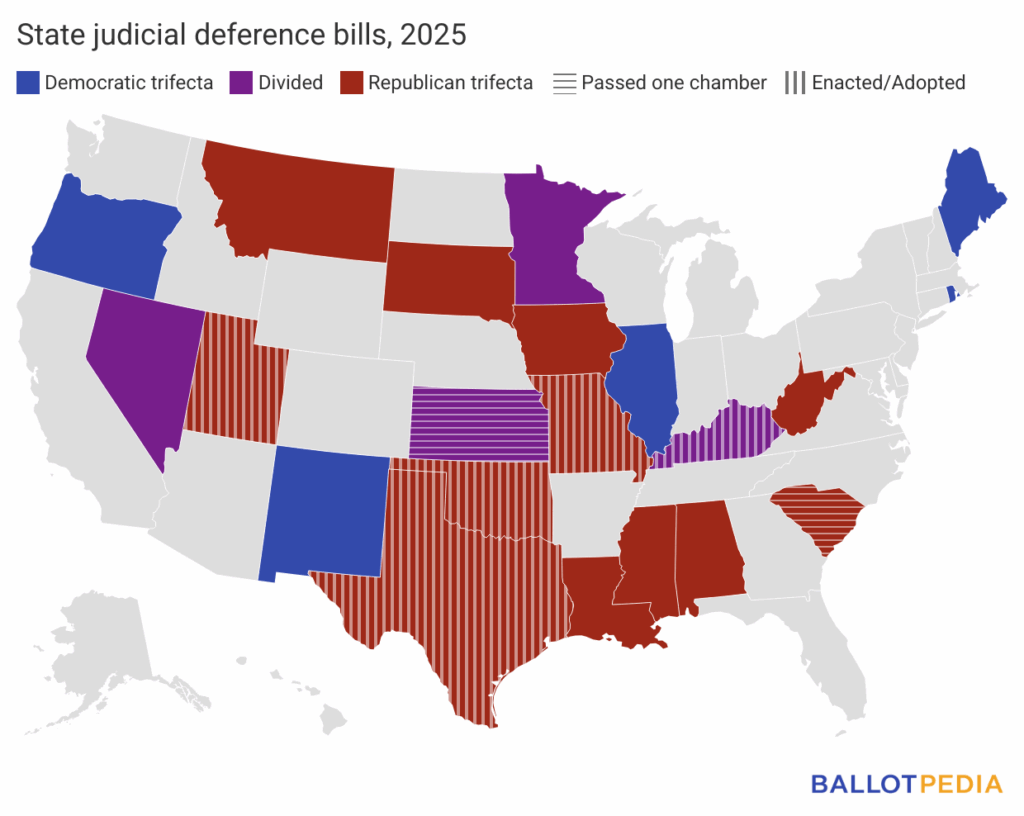On July 11, Missouri Gov. Mike Kehoe (R) signed Senate Bill 221 into law. The bill limits judicial deference by state courts to state agencies. Judicial deference is the practice of courts adopting or yielding to an agency’s interpretation of an ambiguous law or regulation.
SB 221 was designed to prohibit state courts from deferring “to a state agency's interpretation of… [a] statute, rule, regulation, or other document” when deciding cases involving that agency. The bill requires that courts “interpret the meaning and effect” of such documents de novo (meaning that the court would only use its own interpretation when deciding a case).
The state Senate approved SB 221 by a vote of 25-7 on March 6. In the Senate, 23 Republicans and two Democrats voted for the bill, and seven Democrats voted against it. The state House approved SB 221 by a vote of 120-20 on May 15. In the House, 104 Republicans and 16 Democrats voted in favor, and 20 Democrats voted against.
Tracking judicial deference bills in 2025
These 2025 bills come in the wake of the U.S. Supreme Court’s 2024 ruling in Loper Bright Enterprises v. Raimondo, which struck down the doctrine of Chevron deference at the federal level. While the Loper Bright ruling did not apply to judicial deference doctrines in state law, 2025 bills like SB 221 that limit judicial deference at the state level represent a similar movement in state law.
Ballotpedia has tracked 34 bills in 21 states related to judicial deference during the 2025 legislative session. With Gov. Kehoe’s signing of SB 221, Missouri became the fourth state in 2025 to enact a law prohibiting or limiting judicial deference, joining Kentucky, Oklahoma, and Texas. The Utah Legislature passed a resolution directing state agencies to review federal regulations affecting them that had been previously upheld under the Chevron doctrine of judicial deference.

Additional reading



